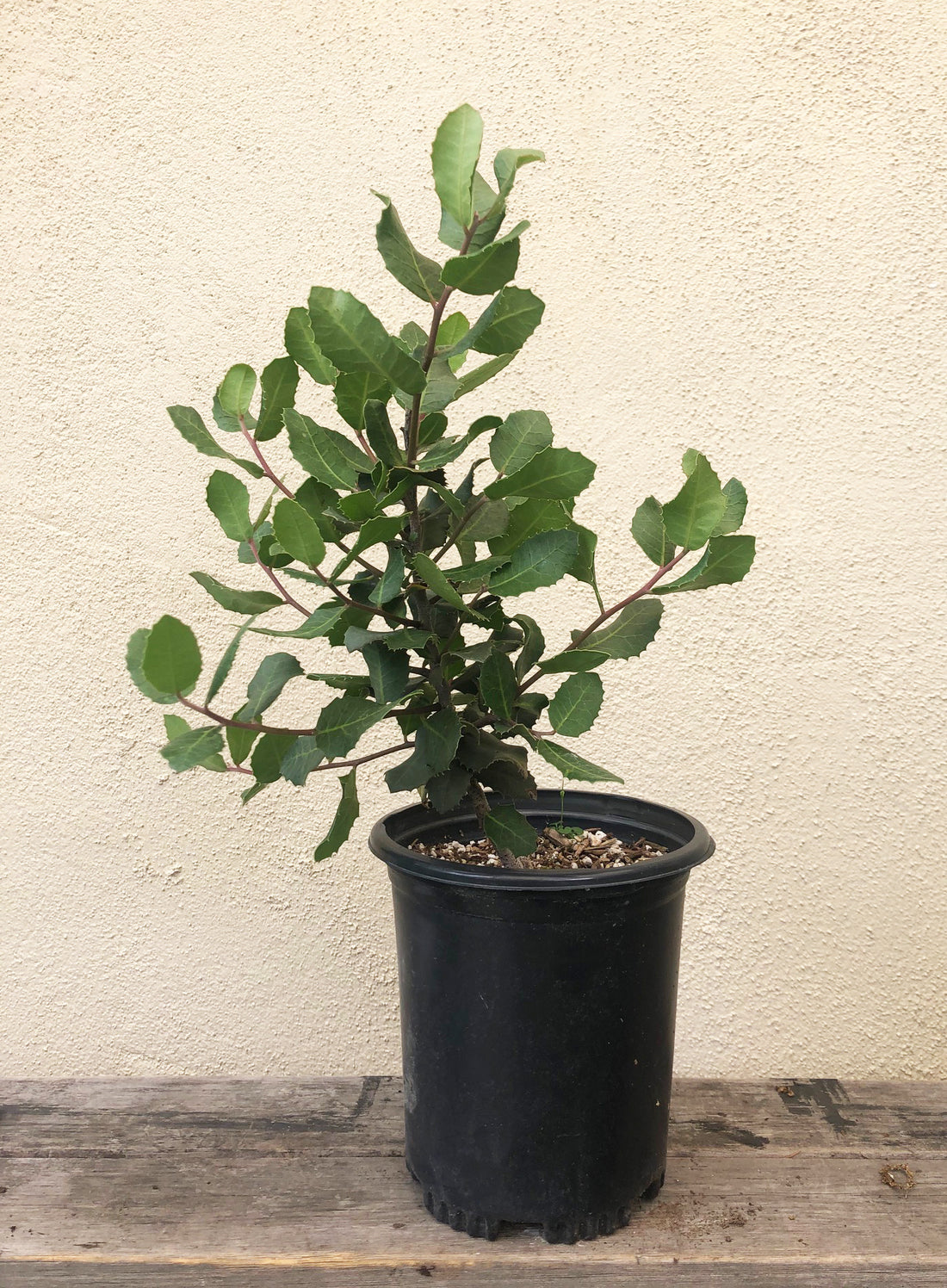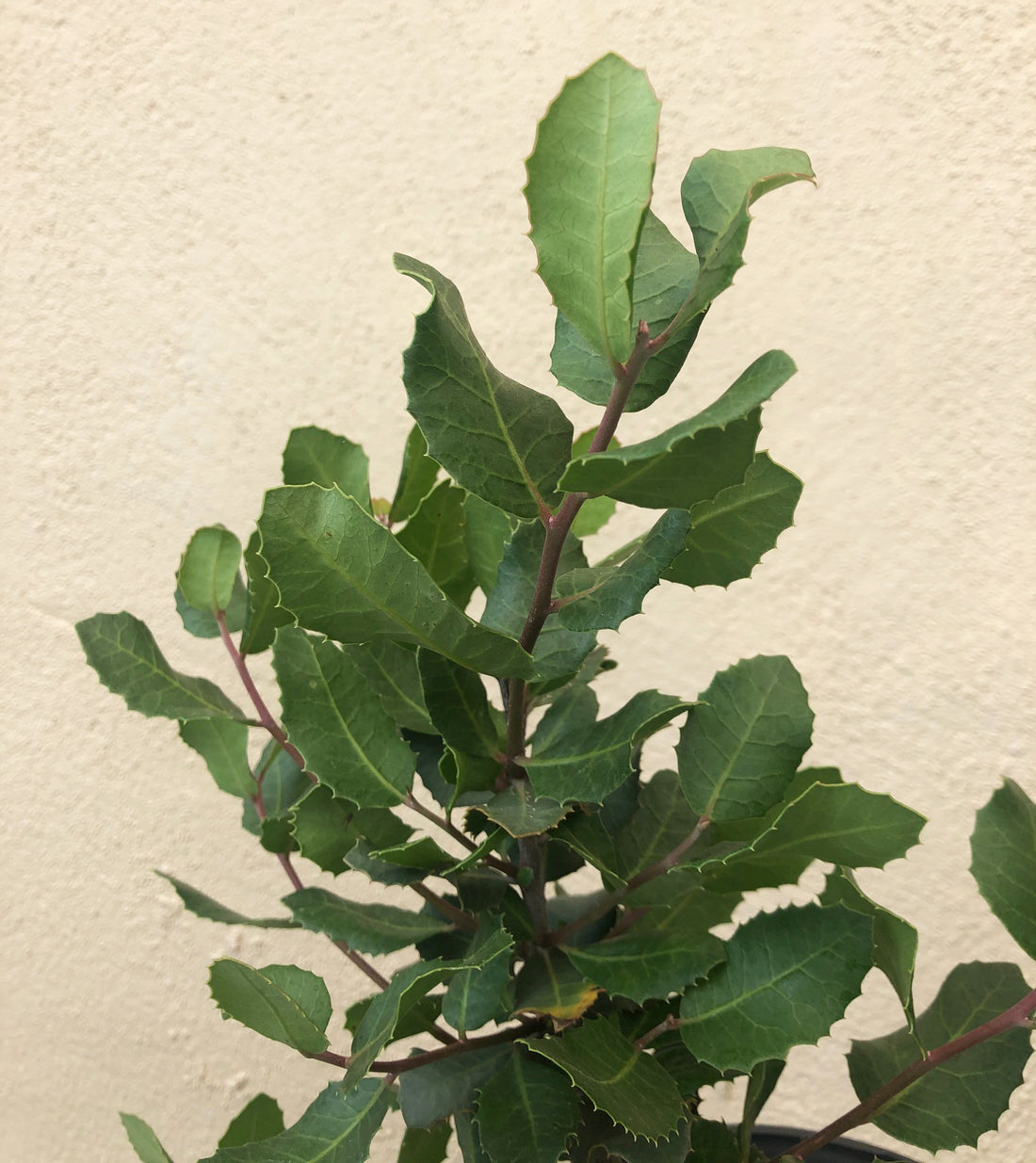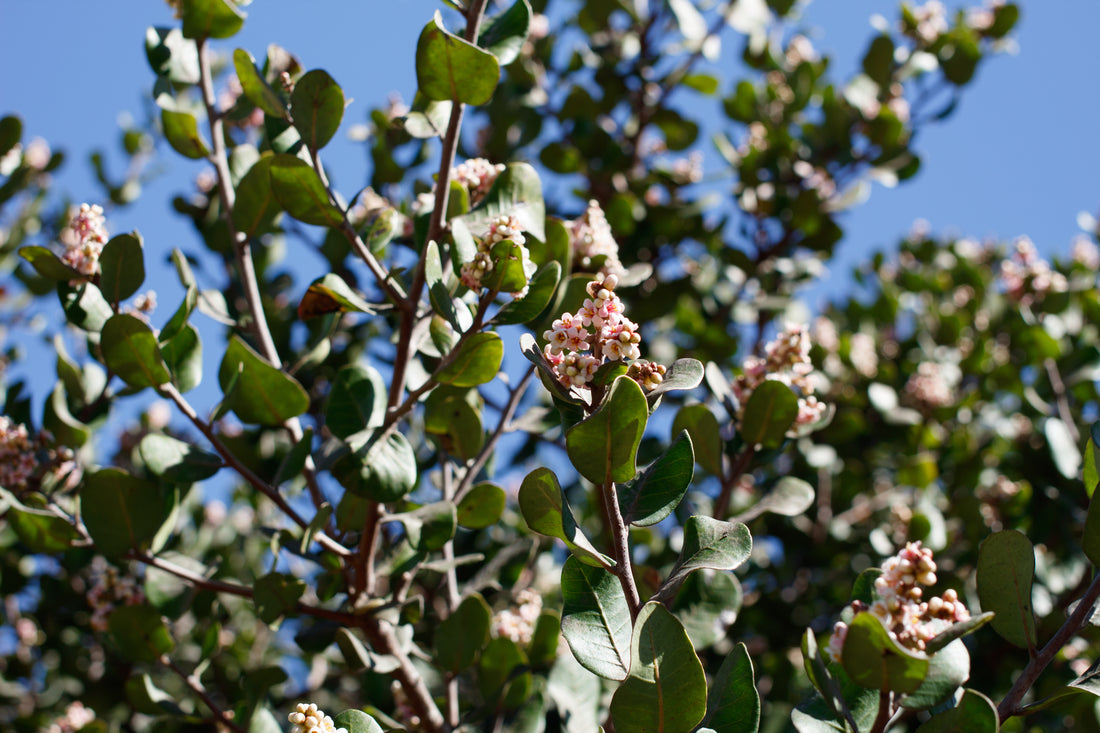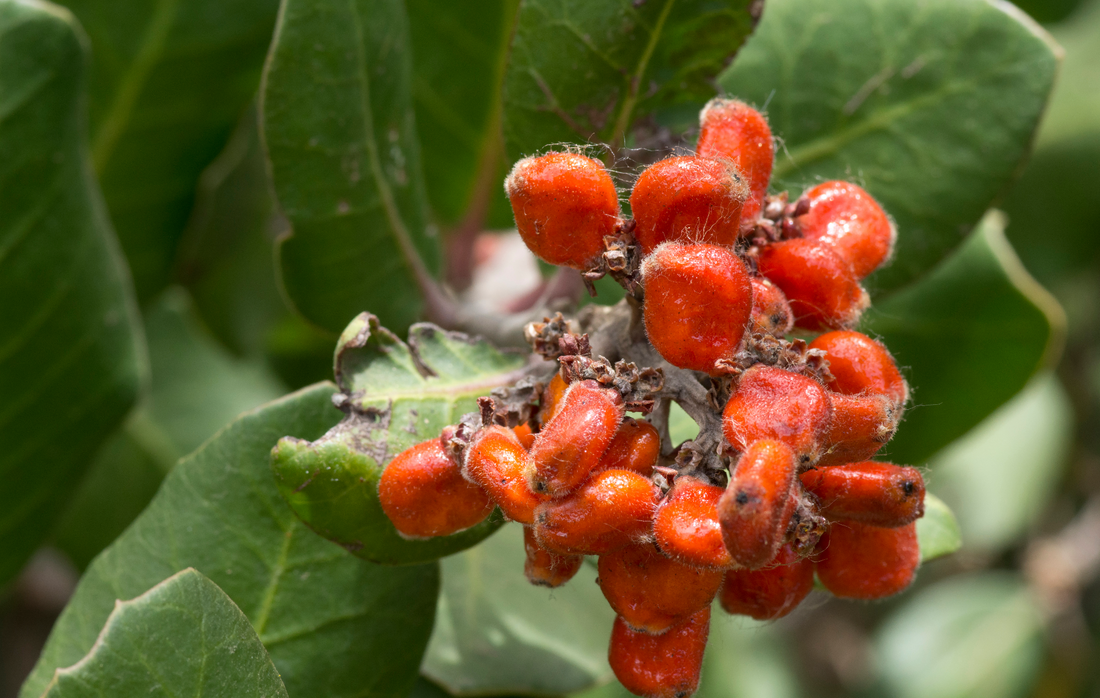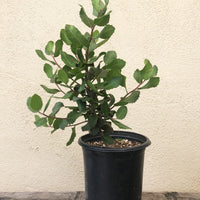
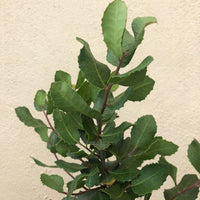
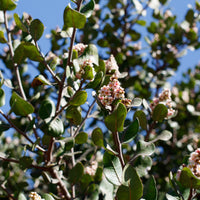
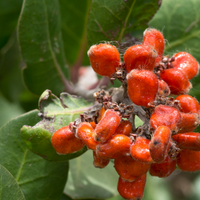
Rhus integrifolia, lemonade berry
Rhus integrifolia, lemonade berry
An evergreen shrub that grows up to ten feet high and wide. It has small pink flowers that bloom in the winter through spring. The fruit is tart. It does well on dry slopes or banks and is useful in erosion control. It’s tough! But slow growing. Young plants should be pinched to pinched to encourage dense growth. You can shear two to three times a year to form a hedge or screen. Wear gloves, you might have a poison oak like reaction to the sap. This plant produces a pollen that can produce an allergic reaction.
These plants are usually pest free but sometimes they are susceptible to crown rot or branch dieback disease.
| Name |
Rhus integrifolia, Lemonade Berry
|
| Family Name | Anacardiaceae |
| Species Name | Rhus integrifolia |
| Common Name | Lemonade Berry |
| Native to | California |
| Plant Type | Shrub, small tree |
| Height x Width | 3-30' x 3-20' |
| Growth Habit | Mounding, rounded |
| Growth Rate | Moderate, sometimes fast |
| Sun Exposure | Full sun, partial shade |
| Water Requirement | Low |
| Soil Type | Tolerates many soil types |
| Flower Color | White, pink |
| Flowering Months | Winter, spring |
| Evergreen/Deciduous | Evergreen |
| Fragrant | No |
| Cold Hardy to | 25 F |
| Attracts pollinators | Birds, butterflies |
| Container Plant | Yes (large pot) |
| Erosion Control | Yes |
| Bank Stabilization | Yes |
| Fire Resistant | Yes |
| Deer resistant | Yes |
| Local plant | Yes |
Tongva - sorah
Kumeyaay - huutat
Chumash - walqaqsh
This content type will accept rich text to help with adding styles and links to additional pages or content. Use this to add supplementary information to help your buyers.
You can use product metafields to assign content to this tab that is unique to an individual product. Use tabs to highlight unique features, sizing information, or other sales information.
Rhus integrifolia, lemonade berry
An evergreen shrub that grows up to ten feet high and wide. It has small pink flowers that bloom in the winter through spring. The fruit is tart. It does well on dry slopes or banks and is useful in erosion control. It’s tough! But slow growing. Young plants should be pinched to pinched to encourage dense growth. You can shear two to three times a year to form a hedge or screen. Wear gloves, you might have a poison oak like reaction to the sap. This plant produces a pollen that can produce an allergic reaction.
These plants are usually pest free but sometimes they are susceptible to crown rot or branch dieback disease.
| Name |
Rhus integrifolia, Lemonade Berry
|
| Family Name | Anacardiaceae |
| Species Name | Rhus integrifolia |
| Common Name | Lemonade Berry |
| Native to | California |
| Plant Type | Shrub, small tree |
| Height x Width | 3-30' x 3-20' |
| Growth Habit | Mounding, rounded |
| Growth Rate | Moderate, sometimes fast |
| Sun Exposure | Full sun, partial shade |
| Water Requirement | Low |
| Soil Type | Tolerates many soil types |
| Flower Color | White, pink |
| Flowering Months | Winter, spring |
| Evergreen/Deciduous | Evergreen |
| Fragrant | No |
| Cold Hardy to | 25 F |
| Attracts pollinators | Birds, butterflies |
| Container Plant | Yes (large pot) |
| Erosion Control | Yes |
| Bank Stabilization | Yes |
| Fire Resistant | Yes |
| Deer resistant | Yes |
| Local plant | Yes |
Tongva - sorah
Kumeyaay - huutat
Chumash - walqaqsh

